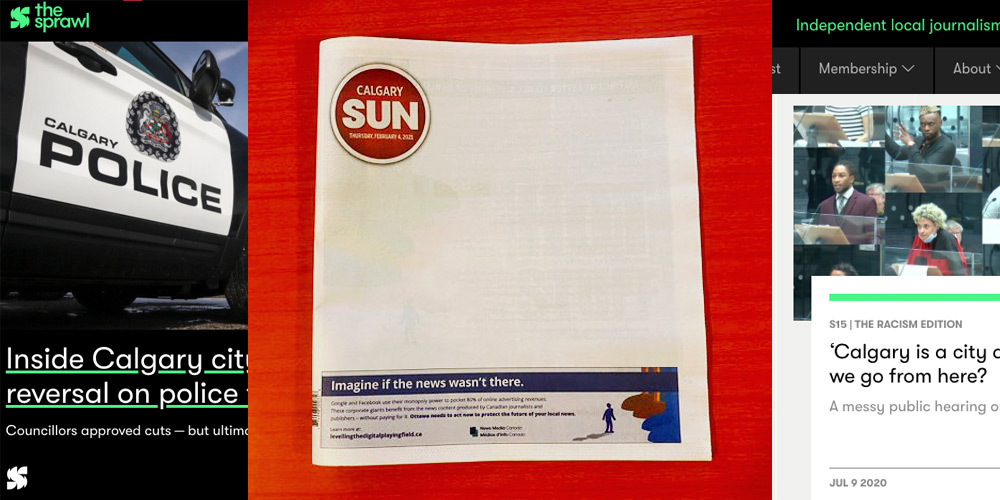The warnings came as a part of a campaign from News Media Canada, which represents the newspaper industry.
“These newspaper chains are trying to cast themselves as David versus Goliath, that is actually in the campaign, and it’s not very credible when you look at Postmedia and its American hedge fund ownership,” says Jeremy Klaszus, publisher of The Sprawl, a Calgary-based digital media startup.
“You also have these exorbitant executive salaries and local newsrooms being eviscerated,”
Klaszus cites a 2017 deal where Postmedia and Torstar, Canada’s two largest newspaper companies, struck a deal to swap a total of 37 community newspapers and four free commuter papers – and then promptly shut down most of them.
It was a move that prompted Canada’s Competition Bureau to sit up and take notice; however, early last month the bureau closed the investigation, noting in a press release that “to refer a case for prosecution under the criminal conspiracy provisions of the Competition Act, the Bureau must find clear evidence demonstrating that competitors reached an agreement to fix prices, allocate markets, or lessen or eliminate the supply of a product or service.”
It will likely be a challenge to get sympathy for mainstream media outlets in a political environment where the media does not experience high levels of trust by the public.
“The sad thing is that I feel for the folks in these local newsrooms, because they are suffering and there isn’t really a plan to transition to the future where the news is online,” says Klaszus.
Detractors of the media stunt, like the Globe’s Andrew Coyne, took to Twitter to criticize the campaign and point out that while large newspapers decry the loss of advertising dollars due to the models that Facebook and Google use, every news site also has social media buttons urging the reader to share their content online.
The campaign is timed to coincide with Canadian Heritage Minister Steven Guilbeault’s promise of legislation this year to ensure tech giants like Google and Facebook pay for the news content they disseminate on their platforms.
“This campaign is a last-ditch effort to recoup some of the advertising dollars that these newspapers had in the good old days, and it sucks that the reporters are stuck in the middle of it,” says Klaszus. “I think these companies have squandered trust with the Canadian public by doing things like laying off journalists at the same time you’re paying out executive bonuses.”
While there is some truth to the campaign — and compelling evidence that tech giants are responsible for the spread of fake news and eroding ideals of democracy — the publisher-members of News Media Canada bear at least some of the responsibility for failing to develop an effective digital strategy to get readers to pay.
While Facebook and Google’s market dominance hurts the revenue stream of traditional newspapers, social media and search engines have also allowed independent publishers to take advantage of their tools to build a readership.
“The Sprawl doesn’t have advertising, so that question is removed from the equation, but we use these platforms to reach our audience, and the same would be true of many digital startups,” says Klaszus.
The Sprawl is membership-driven and thrives on community input and engagement. Rather than relying on advertising revenue to carry the costs of the organization, The Sprawl’s model was to chase the stories that gain a readership to start with.
We are moving beyond a time when media conglomerates would tell the public what they thought would interest them. Now, more than ever before, readers’ tastes have led to increasingly niche consumption of news. It is unlikely that we will go back to the ways things were, and the news bosses need to finally accept it.
Edmonton Sun Photo by tweeted by Duncan Kinney
